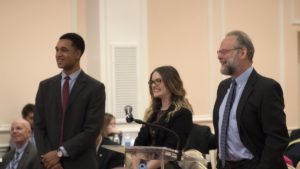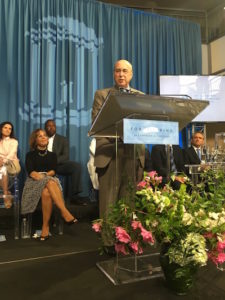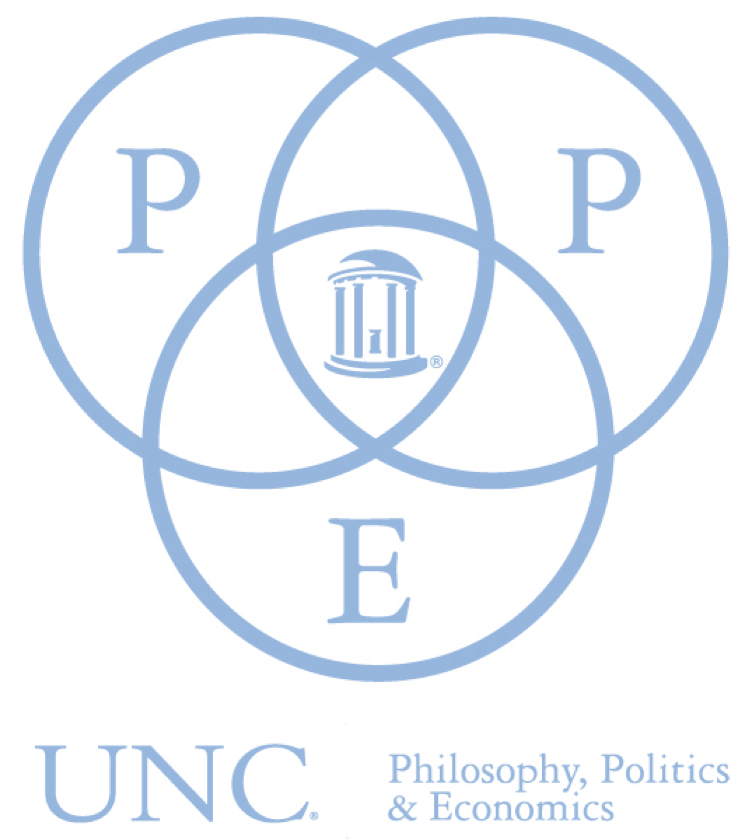In today’s rapidly growing information age, the study of individual academic subjects must expand to connect with students who will live and work in a global environment. Demonstrating relevancy and intersections with other areas of study is a pressing reality. At the University of North Carolina at Chapel Hill, they’re tackling that challenge with the Philosophy, Politics and Economics program (PPE). Founded at the University of Oxford in 1920, the PPE program exposes students to new ideas and encourages open thinking in the three named areas of study.
“Our distinctive feature is bringing together these three academic disciplines in a comprehensive and cohesive way, with a particular emphasis on the moral significance of each,” said Geoffrey Sayre-McCord, Director of the PPE program at UNC-Chapel Hill.
The Basics
Established at Chapel Hill in 2005 with support from the Pope Foundation, the PPE program is held in conjunction with Duke University — offering enrolled students both a minor at Chapel Hill and a certificate at Duke. As the only joint UNC-Duke program at the undergraduate level, PPE has distinguished itself as a valuable addition to learning at both schools.
The PPE program at UNC-Chapel Hill requires five courses for the minor: one gateway course, one capstone course, and one course of the student’s choosing in each of the disciplines (philosophy, politics, economics).
To supplement the classroom experience, students are offered extracurricular opportunities including semester-long reading groups, intensive weekend seminars, international travel opportunities with PPE conferences, a guest speaker series (open to all on campus), a PPE Society student chapter, and the National Undergraduate PPE Colloquium.
The Impact

The PPE program at Chapel Hill is the largest of its kind in the United States.
But PPE’s proof of impact isn’t just in the numbers. During a February 2018 Board of Trustees meeting on campus, Sayre-McCord and two students spoke about the importance of the program and the desire to expand it.
The program is ideal for students who want to challenge themselves and better understand the forces that shape our culture and economy. Possible career paths include working in the private sector in management, consulting, journalism or law; and working in the public sector in public policy, government administration, or nonprofits. PPE also provides a solid base for later pursuit of a masters or PhD.
The PPE website exhibits how diverse the vein of study is, with suggested internships ranging from the AFL-CIO to the Institute for Humane Studies. Past Reading Groups on their website include works by Friedrich von Hayek, Jean-Jacques Rousseau, and Cass Sunstein.
The Future

In 2018, the Pope Foundation provided a $10 million gift to UNC-Chapel Hill, with $3.75 million directed to the PPE program (other recipients included UNC Lineberger Comprehensive Care Center, UNC Horizons Program, and track and field athletics). The Pope Foundation had previously supported PPE with annual gifts ranging from $50,00-100,000. The gift allowed PPE to create two tenure-track professorships and two non-tenure track visiting assistant professorships. Currently, when a new PPE class is offered, it immediately fills, leaving many students waiting for an opportunity to join.
For more information about the Pope Foundation’s $10 million commitment to Carolina, read our press release.
